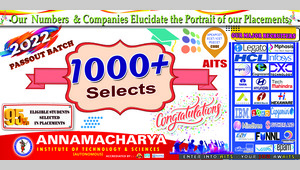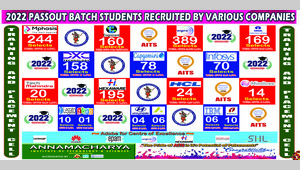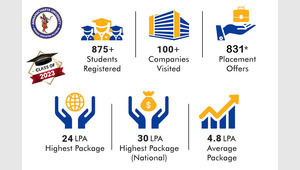Department
Electrical & Electronics Engineering
Student Achievements
Engineering students often achieve remarkable accomplishments in various domains, reflecting their skills, creativity, and hard work. Here are common engineering student achievements:
- High GPA: Maintaining a high-Grade Point Average (GPA) throughout their studies, often graduating with honors such as cum laude, magna cum laude, or summa cum laude.
- Top Rank in Class: Achieving the top rank in their department or class, sometimes earning the title of valedictorian or salutatorian.
- Published Papers: Publishing research papers in reputable journals or conference proceedings, often as part of a capstone project, thesis, or independent research.
- Conference Presentations: Presenting research findings at national or international conferences, earning recognition from peers and experts in the field.
- Patents: Securing patents for innovative designs or inventions developed during their academic career.
- Startups: Founding or co-founding a startup company based on an innovative idea or technology developed during their studies.
- Product Development: Designing and prototyping new products, devices, or systems that address real-world problems, sometimes leading to commercialization.
- Innovation Challenges: Winning innovation or design challenges organized by universities, companies, or professional societies.
- Hackathon Wins: Securing top positions in national or international hackathons, where students develop solutions to technical challenges within a short time frame.
- Robotics Competitions: Winning or placing in robotics competitions like RoboCup, FIRST Robotics, or BattleBots, showcasing expertise in robotics design and programming.
- Engineering Design Competitions: Achieving recognition in engineering competitions such as the Solar Decathlon, Formula SAE, or Concrete Canoe, where students design, build, and test engineering solutions.
- Best Paper/Project Award: Receiving awards for the best paper or project in academic or professional conferences, highlighting the quality and impact of their work.
- Merit-Based Scholarships: Receiving prestigious scholarships such as the National Merit Scholarship, Goldwater Scholarship, or institution-specific awards for academic excellence.
- Research Fellowships: Earning research fellowships like the NSF Graduate Research Fellowship, providing funding and resources to pursue advanced research.
- Leadership Roles: Serving as president, secretary, or treasurer of student organizations, clubs, or professional society chapters (e.g., IEEE, ASME).
- Event Organization: Successfully organizing major events such as technical symposiums, career fairs, workshops, or community service projects.
- Mentorship and Peer Support: Leading mentorship programs, tutoring peers, or volunteering in outreach activities to inspire and support fellow students.
- Prestigious Internships: Securing competitive internships with leading companies like Google, Microsoft, Tesla, or NASA, gaining valuable industry experience.
- Co-op Programs: Participating in cooperative education (co-op) programs that combine academic study with paid work experience in engineering roles.
- Technical Outreach: Volunteering in initiatives that bring engineering education to underserved communities, such as teaching STEM concepts to school children or developing low-cost engineering solutions for local needs.
- Sustainability Projects: Leading or participating in projects focused on environmental sustainability, such as developing renewable energy systems or promoting energy efficiency.
- Study Abroad Programs: Participating in study abroad programs where students gain global perspectives and experience different engineering practices in other countries.
- International Competitions: Competing in and winning international engineering challenges or competitions, representing their university on a global stage.
- Certified Engineer-In-Training (EIT): Passing the Fundamentals of Engineering (FE) exam, an important step toward becoming a licensed Professional Engineer (PE).
- Industry Certifications: Earning certifications in specific technical areas such as Six Sigma, Cisco Certified Network Associate (CCNA), or Certified LabVIEW Developer (CLD).





